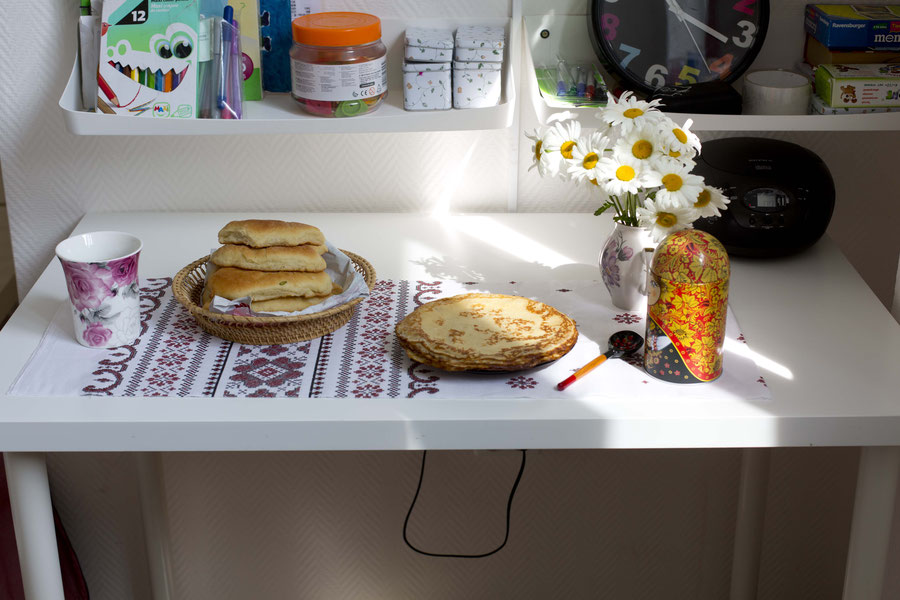When I sat at the table for the first time, I sat in front of a plate of naked noodles and a piece of the whole chicken that I. had been cooking in the oven for five hours. The plate was as big as a breakfast plate in Germany but full to the brim. There was a small plate, the size of a saucer, with tomato and cucumber pieces. Also, without sauce. On the table were ketchup and mayonnaise.
To understand my feelings at the sight of this dinner table, one must know how my normality looks. I come from a household, where family life takes place mainly around the table. We eat, fight and celebrate during dinner. There are many fixed rules, which were particularly important when we were young. We weren't allowed to chew audibly and had to bring the cutlery to the mouth, not the other way round. Here in Russia, etiquette is different. Less attention is paid to how people eat. They chew as loud as they want and their head is bent till it hovers a few millimetres above the table top. No bowls or pots are placed on the table. Everyone gets one plate. Often different people get different dishes. The meal is neither begun together nor ended together. Nevertheless, a community formed around the table for the overlapping time. All the work - cooking, table prepping and cleaning the kitchen - does the mama. The astonishment that this eating culture caused in me quieted down only after a few months. When my time in Samara was almost over, I understood that what I perceived as beautiful and harmonious, seemed oppressive and senseless to my Russians.
When I sat at the table for the last time, I felt for the first time excitement at the sight of the food. I could find everything I had learned to love with the Hamzina family, during my altogether four months-long visits. Now the different types of sauceless meat were no longer alien to me. On the contrary, I appreciated the taste of the smoked flavours and the soft texture of the shashlik. (It's always prepared by the man of the house.) I had learned to eat the meat without any side dishes or sauces and even added some ketchup several times. (A crime where I come from.)
The Russian eating habits differ in principle from the Germans not in WHAT's on the plates, but how it's served. The most important ingredient for a healthy meal is meat and carbohydrates. For children, the soup for lunch guarantees vigorous growth and a long life. Vegetables, which are classified as "particularly healthy" in Germany, don't seem to be thought of highly. For six months, I haven't eaten salads or sauces. Often I have the impression that everything that is regarded as healthy in Russia is classified as unhealthy in Germany.
Proof of my irritation is that I never photographed the food. I found it visually unappealing. As much as I am convinced of my way of life, I have once more learned how relative my perspective is. In other words, nothing that seems indispensable to me is truly indispensable.
* If you like what you read, consider supporting me on patreon!*



Write a comment